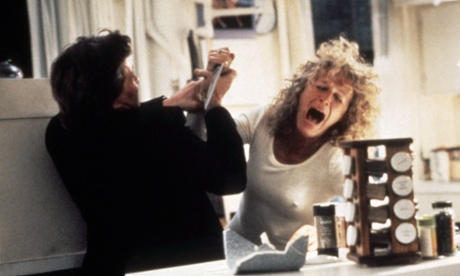If you’re anything like me, what shared emotional life you might still have is mostly achieved by mainlining shows on a streaming service with your loved one perched on the sofa nearby. When I say loved one, I mean co-watcher.
I’m not knocking Netflix or HBO or, now, BritBox, or the rest. I depend on them. These shows – you know the ones I mean – dramatise the bits of our relationships we’re too exhausted to undergo the drama of ourselves. At their best, they even hand us a predigested, precritiqued dose of the vexed and vexing world we’re in, allowing us both an engagement with it and an escape from it.
Among friends, discussing these shows is reliable social glue, a fix of the cultural commonality we used to enjoy when everyone tuned into the same programme on the same channel at the same time. A time when what we had to feel guilty about was less a sense of, say, oppressive complicity and powerlessness, and more to do with our pleasures. So thank God for the streaming services, for bringing the pleasure principle back to culture. We can all agree we’re in a golden age of storytelling – topical, daring, boundary-pushing, conversation-changing.
And yet despite, or precisely because of, their brilliance, humanity and depth … they’re kind of The Matrix, right? We kind of know they’re the endpoint of hyper-sophisticated, late-capitalist entertainment production, and they’ve got us totally in their grip. We kind of know they make us into soma-addled, Huxley-ish figures, engulfed in the sheer pleasure of binge-watching while the world burns. Also, and here I speak as a film-maker, bingeing while you could be catching a film instead.
Pleasure – plaisir – is what the French literary theorist Roland Barthes called one kind of effect culture has on us: the effect of “readerly” as opposed to “writerly” texts. Readerly culture, the “audience-friendly” kind, is pleasurable precisely because it confirms our sense of ourselves, our ego, our position in the group. It gives you a nice juicy hit of belonging. You get to enjoy working over your identity and some of its contradictions. Readerly texts are basically homogenising. They’re the bubble.
The writerly text does the opposite: it explodes your easy relatability. Instead of plaisir, it offers jouissance – the part of enjoyment that’s closer to pain. The excessive, destabilising bit of the pleasure principle that’s channelling the death drive. Instead of knowing yourself better, you come out unknowing yourself. Maybe barely recognising yourself at all. It will probably hurt.
I’m going to say Netflix is basically plaisir and cinema is jouissance. Girls is plaisir; The Souvenir, jouissance. Or, Babylon Berlin, plaisir; The White Ribbon, jouissance. House of Cards, plaisir; Il Divo, jouissance. Atlanta: starts out plaisir but gets pretty jouissancy. The new Twin Peaks: so jouissancy it was just an overwhelming plaisir. As you can see, the TV/film distinction isn’t cut and dried – and clearly there are plenty of movies that just want to be plaisir, which is great, except when they’re bad at it. I’m not naming names.
The point is, jouissance will do something to you in a way plaisir doesn’t. It’ll discomfit, even if that discomfiture is being given a beauty so naked that you suddenly can’t pretend you don’t have a soul. As a general indicator, jouissance is more likely to lead to you and your partner sleeping in separate rooms. It’s a pain.
And so is schlepping your physical body out to the movie-house, especially to watch something that’ll make you hurt. Cinema, in its ideal sense, means both “the moving pictures” and the place where you go to worship them in their full, ego-obliterating splendour. But now with streaming services piping them straight to your cosy sofa for a fraction of the cost, and with wine you can actually afford, that trip starts to resemble a pilgrimage. Who can blame you if you’d rather domesticate the challenging art-film experience? Jouissance hurts enough even on a cosy sofa, and we already live in painful times. So who needs more, right?
Well, Martin Scorsese, for one – a film-maker whose appeal emerges from an extraordinary blend of plaisir and jouissance both. Perhaps that’s why, for all his years, Marty embodies this most contemporary of conundrums. There he is, helplessly wired into the Netflix dollar yet somehow, like the protagonist of Tarkovsky’s Nostalghia, still struggling to keep alive the delicate candle flame that flickeringly illuminates those emptying cathedrals where some sort of mystery seems, if no longer possible for us, then possible, perhaps, for some as-yet-unimagined future iteration of the human.
Don’t get me wrong. Hung on the cliff edge of these ever darkening times, I’ll take all the plaisir I can get. I’m every bit the addict, jacked into the mainline of all-subsuming capital – yet no less consumed by a “nostalghia” for what I can’t but feel is disappearing. Which, I guess, is what makes me want to try to keep that vanishing sense of another possible self, another world, aflame. I don’t know if, in the future, “cinema” is where we’ll still be able to find it. But it’s becoming increasingly hard to imagine we’ll recover all of it online.
• Josh Appignanesi is a film-maker











